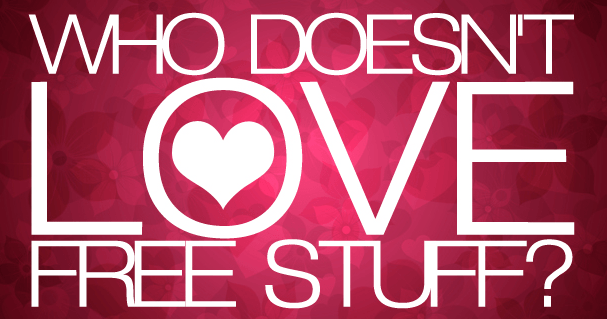Consider a product that you don't really need, but that is normally sold at a reasonable price. Would you buy this product if it was offered to you at a 90% discount?
Would you accept it if someone offered it to you for free? Our best guess is that you wouldn't buy something you didn't need, even if it was on sale.
But, if you could get it for free, wouldn't you take advantage of the opportunity? You're only human, after all. And the word "FREE" appeals to human nature at all times.
But, let's be honest, nothing comes for free.

There is always a snag. There is always a cost, whether they ask you to complete a survey, Like the offer on Facebook, or expect you to become a paying customer of the product after the trial period. And there's nothing wrong with that as long as the "costs" aren't hidden and don't put people's privacy and security at risk.
Lots of online freebie offers are honest and upfront about the real 'cost' and liking a post isn't a bad trade off for a free lipstick, or a cool notepad or whatever it is being offered free. However, some online freebie 'offers' are nothing more than phishing scams, just scams that are a little more sophisticated than those old Nigerian prince emails.
Cybercriminals use phony freebies to trick you into giving them your personal information, which they then sell on the black market, or trick you into downloading spyware or viruses that perform malicious tasks on your device, whether it's a PC or a smartphone.
Ads for fake freebies are usually found in places where there is a lot of user activity, such as social networks, forums, and online file-sharing platforms. You must be on the lookout for them and learn how to spot them, as they can jeopardize your privacy and online security.
The following are some of the most common types of fake freebies you might come across while surfing the web or socializing online:
Freebies on Facebook.
Take a look at this! You actually get an iPad for free. Be very cautious if you see posts like this on a friend's Timeline or if you receive a private message with this kind of language. There's a good chance you're the victim of a Facebook survey phishing scam.
Facebook messages like these frequently include offers for free iPads, Facebook credits, airline tickets, gift certificates, and game items. To take advantage of them, you must first "Like" the post/download an app and then complete an online survey.
If you do either of these things, you'll almost certainly become infected with malware that aids in the spread of the scam. Furthermore, by completing the survey with the required information, you are essentially handing over personal information to scammers. Ignore the message, delete it, and then, if it came from a friend warn them, as their Facebook account has probably been hacked.
Freebies from Pinterest.
If you see a freebie ad ([Company Brand] is giving away free gifts/gift cards to all Pinterest users!), ignore it. It's a Pinterest survey scam if you see something like this (Click here [link] to get yours) posted all over Pinterest. It works similarly to a Facebook survey scam, except instead of liking, scammers ask you to re-pin the ad.
Free Online Trials
Scammers frequently advertise FREE trials for a variety of products, ranging from exercise equipment to weight-loss solutions, on the internet (even on reputable sites). Because these items are delivered to you, you must provide your address and credit card information in order to pay for them.
These offers include fine print Terms & Conditions that are often difficult to read, causing most people to ignore them. If you don't read them carefully, you might end up buying the product after the trial period is over. And there are a plethora of scamming opportunities.
Malvertising
You may see ads promoting FREE online services/apps or pop-up ads claiming you're "the one hundredth visitor of the site, and you've won something huge," similar to the category above. If you click on them, however, you'll either be taken to a phishing site or unknowingly download malware. As a result, the term "malicious advertising" was coined (malvertising).
How can you protect yourself from "Freebie" con artists? Here are some pointers:
Any offer that includes the word "FREE" should be regarded with caution. Examine the company that is offering the free product and read any fine print or license agreement that comes with it. Make sure you understand what you're signing up for!
Use caution when entering your credit card information on websites. Some genuine freebies do charge shipping and handling, so that alone is not always a sign of a scam. Make sure their website address begins with https:// rather than just https://.
There's a good chance that a FREE giveaway ad you see on Facebook or Pinterest is a scam. It doesn't necessarily mean the ad is legitimate just because a friend liked it or re-pinned it especially if it asks you to fill out surveys or give away personal information. Visit the Safety and Security Centers of the social networks with which you have accounts to learn about the threats you face and how to avoid them.
If you see an ad that says "Congratulations! You're a Winner" on a forum or file-sharing platform, be extra cautious and use your common sense don't click on it!
Make sure your antivirus software is up to date and that it is installed on your device. If you accidentally click on a malicious ad, a good, up-to-date antivirus program should detect and remove the infection right away.
Remember: if an offer appears to be too good to be true, it most likely is!
